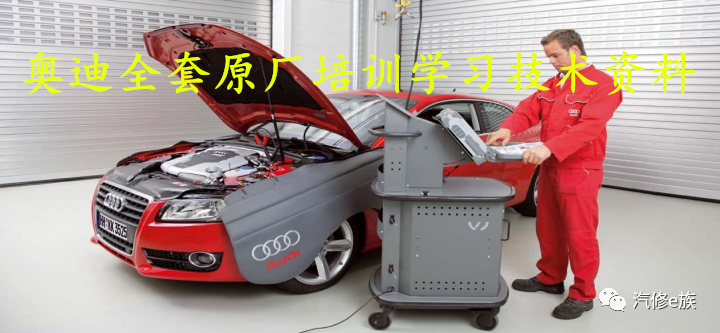First, let me clarify that this story is a bit long. Please prepare yourself mentally.
Hello everyone, I bought a low-power version of the BMW X3. At that time, I was just starting a business and didn’t have much capital, so I couldn’t afford the high-end model. Since it was a low-spec car, the configuration was quite basic. After buying the car, I started to learn about various modifications and began to tinker with it. I later modified the rearview mirrors, added an electric tailgate, installed rear air vents, upgraded to a Harman Kardon sound system, and swapped in a 328M steering wheel, among other things. Now, if I add up all the money spent on modifications, I could have almost bought the 28i model directly! Damn!
Getting back to the main topic, today we are discussing ECU flashing.
***Starting the Flashing Process***
Previously, I drove an ATS-L for a long time, and when I switched to this BMW X3, I felt it was a bit sluggish. I learned that flashing the ECU could enhance the power, so I searched online for various information about ECU tuning. I found out that my X3’s engine is the N20B20A, which is said to have the same hardware specifications as the high-power version, with a compression ratio of 10:1. However, I also learned that many owners had experienced engine failures after flashing their ECUs, but their engine models were somewhat different from mine. There are four models of the BMW N20 engine in China: N20B20A, N20B20B, N20B20C, and N20B29D (what a headache!). The N20B20A is said to be the imported high-power engine version, and I thought, why use a low-power program when I have a high-power engine? Wouldn’t it be perfect to flash it to the high-power program? Haha.
So, with a trial-and-error mindset, I consulted many vendors, and the feedback was that my car could be safely flashed without any issues. I found a shop in Hefei that promised to take full responsibility for any engine problems within two years. I thought, since many people online have flashed their engines without issues and they also promised after-sales service, I decided to let this shop, which I felt had been in business for a long time and seemed relatively reliable, flash my ECU. Plus, they were from my hometown in Anhui (you can’t cheat your fellow townsfolk, right?), so it would be easier to resolve any issues.
After the flash, the effect was indeed very noticeable; the acceleration was much quicker, and I was quite satisfied (I was overjoyed at the time, thinking I had struck gold by spending 5,000 yuan to enjoy a high-powered car. But little did I know, I would later pay a painful price for this, haha). So, I happily paid 5,000 yuan for the ECU flash (now I realize that the prices for ECU flashing range from 3,500 to 5,000 yuan, and I got ripped off again; sometimes choosing the more expensive option isn’t the best). That evening, I even treated the technician who flashed my car to a nice dinner (now that I think about it, I was such a fool [angry]). Since the results were good, I didn’t encounter any issues for a few months, and later, a colleague of mine also bought a new X3, so I introduced him to that shop for ECU flashing. [Dizzy] I really led him into a trap.
***Problems Arise***
However, good times didn’t last long. Around June 25 of this year, my car started to shake. At first, I didn’t think much of it and didn’t suspect that the ECU flash was the cause. I had a friend who does automotive modifications and repairs use a BMW-specific program to read the fault codes, but no codes were found. Since nothing was detected, I thought it was probably a minor issue. I had no choice but to take the car to the dealership for inspection.
Knowing that my car had been flashed, I was aware that BMW would not cover any engine faults, so before sending it in, I had my friend restore the ECU to the factory program (but I made a data backup beforehand to leave evidence in case the vendor tried to deny responsibility; this could be used as evidence in court later).
***Attempting to Claim Compensation from the Dealership***
After the inspection at the dealership, I learned that cylinders 3 and 4 had no pressure. I hoped to claim compensation through BMW, so the dealership reported the situation to BMW. BMW replied via email: they suggested disassembling the engine to find the cause of the shaking, and they noted that the DME program had been tampered with. My friend said that BMW usually rejects 80% of such claims, and I was instantly devastated.
***Vendor Dodging Responsibility***
After this issue arose, I immediately contacted the vendor who flashed my ECU. At first, I wasn’t too worried because, although the engine had problems, the vendor had promised to cover it within two years. However, when I communicated with them, they said they needed to disassemble the engine to assess the extent of the damage since the dealership wouldn’t provide after-sales service and the repair costs were exorbitant—over 15,000 yuan just for labor. I had no choice but to have a friend tow the car to a repair shop. Once at the repair shop, they began to disassemble the engine, and to my shock, the piston rings for cylinders 3 and 4 were completely broken, the piston for cylinder 1 had cracks, and there were scratches in the middle cylinder. The engine was basically scrap.
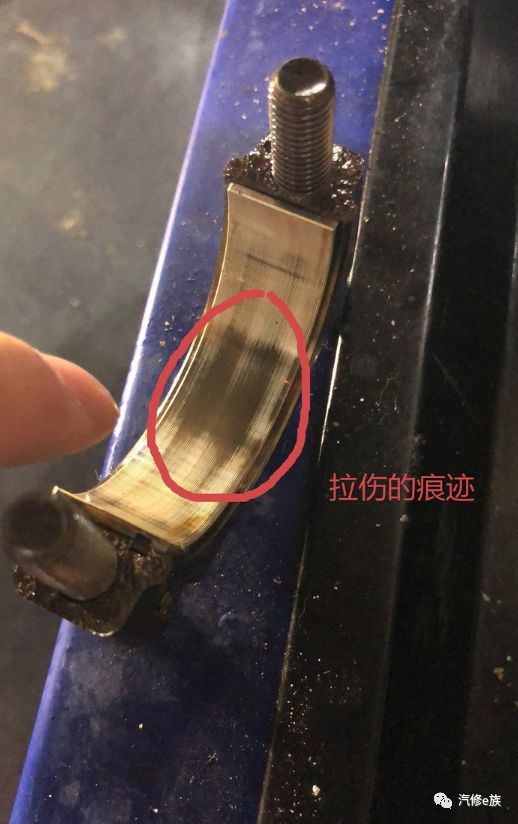
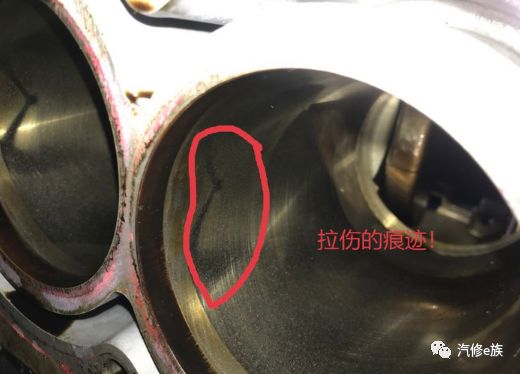
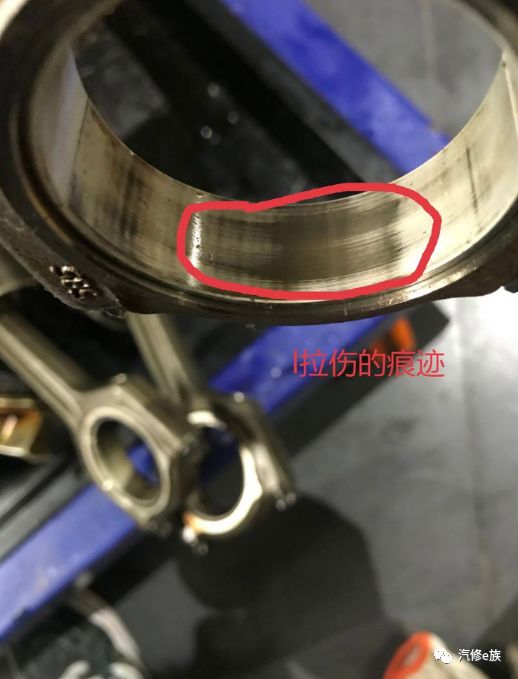
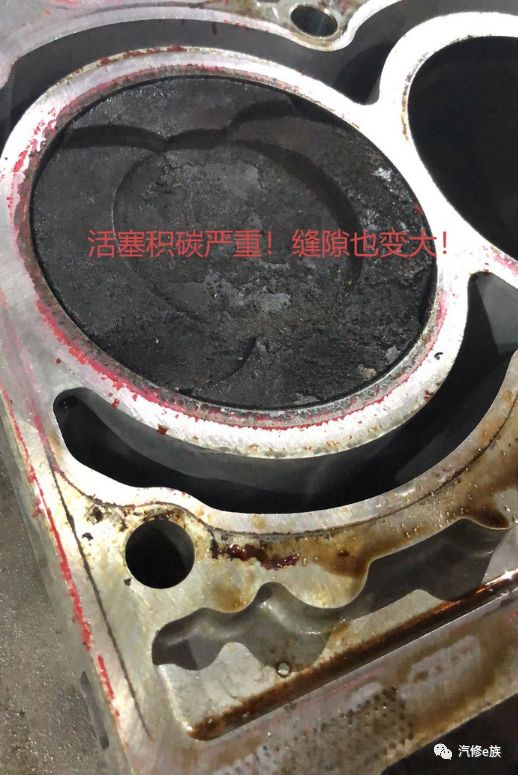
I reported this situation to the vendor and asked how they would handle it, and thus began a tug-of-war with them. They started finding various excuses to shirk responsibility, claiming that the issue was unrelated to them. Initially, they said the fuel I used must have been problematic, asked if I had performed regular maintenance, suspected I had used improper maintenance parts, and claimed my driving habits were too aggressive. Finally, they used the excuse that I didn’t stop driving immediately when the car started shaking, saying I should bear the responsibility myself. (I want to say, why didn’t they mention any of this before or after the ECU flash? Damn, what good is it to tell me this after the problem arises? Besides, after flashing the ECU, I definitely wanted to enjoy the high power experience; who wouldn’t want to race a bit when encountering a show-off on the road, haha). In short, they claimed that the engine failure was not their responsibility, and the fault lay with me. [Smirk] All their previous promises were just empty words.
I had my friend ask the technical supervisor at the BMW dealership about the cause of the engine failure, and he said it was due to improper program flashing. I consulted other friends, even those who do ECU flashing, and they all said there was a problem with the program. I was filled with frustration.
Now, let’s talk about my losses:
First: The value of the car has severely depreciated. If I want to sell it, the engine has been disassembled, and the screws show signs of having been tampered with. A professional used car dealer would immediately know that the engine has been worked on. The engine is one of the most critical components of a car; who would want to buy a car with a rebuilt engine? (Friends buying used cars should also be cautious; you may not be a professional and may not understand the issues with the car [smile]).
Second, there are two repair options: one is to repair it directly, and the other is to replace the engine.
1. Direct repair requires replacing four pistons, boring the cylinders, plus labor costs and various other components, which would cost over 40,000 yuan. However, there is a high probability that a rebuilt engine will burn oil later.
2. Directly replacing the engine. The engines available on the market are mostly used parts from Guangdong or refurbished parts, with prices ranging from 15,000 to 25,000 yuan. Some engines are pieced together from various parts (the engine consists of several parts, and vendors piece together the good parts), while others are taken from scrapped cars (the engine is original and has not been disassembled, but the mileage is unknown), and some are from the Tianjin port explosion or experimental vehicles (engines that have been exposed at Tianjin port will have holes drilled in them to prevent them from being sold as new after being repaired; if you don’t ask the vendor, they won’t tell you [awkward], the water is too deep!).
No matter which option I choose, my losses are enormous.
When I communicated with this vendor, their response was that they were only willing to cover a portion of the towing fee, which was just over 2,000 yuan. Haha, am I that desperate for 2,000 yuan? Are they trying to brush me off? [Awkward]. After some back and forth, the vendor only refunded 4,000 yuan, and then there was no further response. That 4,000 yuan is just a drop in the bucket compared to my losses. I can only laugh at such unscrupulous vendors!
This is roughly the course of events.
Through this incident, I would like to offer some advice to everyone to avoid encountering a similarly tragic experience in the future.
1. After the incident, I learned that although the hardware inside the low-power version of the BMW N20A engine is the same as that of the high-power version, the materials of the piston rods may be different (this was feedback from a friend who works at a BMW dealership; otherwise, the price difference wouldn’t be so significant. He advised me not to flash the ECU, but I didn’t listen and went ahead with it). The compressive strength of different materials is certainly not the same. Therefore, the risks of flashing the ECU are still quite high. Those who have already flashed their ECUs might say, “No way, my car runs perfectly!” But I want to say that just because it runs well now doesn’t mean it will continue to do so in the future. I wish your car never has issues or doesn’t have problems before you sell it.
2. Each vendor’s ECU flashing program is different; some are more conservative, while others are more aggressive. However, if the parameters of the flashed program are problematic, issues will still arise over time. After disassembling my engine, I found that the carbon buildup inside was very severe, indicating that the combustion was not good. Normally, it shouldn’t be this severe. This suggests that my program has issues, such as spark plug ignition timing, intake volume, turbo pressure intensity, and many other parameters. I don’t really understand the logic behind all this; I’m not a car expert.
3. When choosing a vendor to flash the ECU, be sure to sign a contract, and the terms must clearly outline rights and responsibilities. Include a clause that states that if the engine has issues, they must unconditionally compensate for a brand new engine (to prevent them from finding various excuses to shirk responsibility). This is very important. If the vendor is willing to sign, it shows they are confident in their program. If they are hesitant to sign, it indicates they are worried about potential issues and the need to compensate for losses. To my knowledge, many car owners do not sign contracts. They just try the car and hastily pay.
4. For those who have already flashed their ECUs, it is advisable to have the vendor sign a supplementary agreement before any issues arise. Especially with the vendor in Hefei, you should have them sign a new valid agreement. If they are unwilling to do so, have them restore the program to the factory settings and refund your money. Otherwise, it will be difficult to protect your rights later.
5. For car owners who have already flashed their ECUs, it is best not to use 95-octane ethanol fuel (if you want to know why, just Google it). It is recommended to use 98-octane fuel, as it has better anti-knock properties (enjoyment comes at a cost; 98-octane fuel is expensive). Additionally, use high-power version oil and filters, and change spark plugs regularly.
6. Many cars that have been flashed do not have issues temporarily, but just because others have not had problems does not mean you won’t either. Each program is different; who knows if the program you are using is safe and reliable? Every vendor will claim their program is absolutely safe and reliable, but who can prove it? Moreover, most vendors will not inform you of the risks before flashing the ECU. If they did, you might hesitate to proceed, and then they wouldn’t make money.
7. If you haven’t flashed yet but are considering it, I personally advise against it; the risks are too high. Even if the vendor promises to cover any issues for two years, what about after two years? Most people don’t change cars after just two years, right? If the engine has problems after two years, the dealership will not cover it, and you’ll have to pay out of pocket, which also leads to significant depreciation of the vehicle. Selling it later will also be difficult.
8. If you do decide to flash the ECU, it is best to upgrade the engine’s hardware, such as using forged pistons and rods. To quote a post from a vendor who does ECU tuning on the automotive forum: “For engines that are already the same model as the high-power version, upgrading to a set of forged engine internals and then adjusting the program accordingly is the best choice!” (See, they themselves say it’s the best choice. What does that mean? It basically means you must upgrade the engine’s hardware for safety. I don’t quite understand; they are in the ECU tuning business and know that hardware upgrades are necessary, so why don’t they require consumers to upgrade hardware before flashing the ECU? Can someone explain this to me?)
9. If you want to enjoy high power, it’s better to spend money on the high-power version directly. In fact, the low-power version is sufficient; switching from D to S mode provides decent power. There are no slow cars, only slow drivers. Haha.
I hope my tragic experience can serve as a reference for everyone considering ECU flashing. The above views are solely my personal opinions, and I welcome corrections if there are any inaccuracies.
***The main text ends here, the following are related notes***
The BMW technical supervisor replied that the repair costs would be over 15,000 yuan, excluding hardware costs.

This is the feedback from the BMW technical supervisor regarding the cause of the engine failure.

This is BMW’s email response, stating, “The DME software has been tampered with; please be aware.” This indicates that claiming compensation is hopeless. BMW is quite powerful; as long as the program has been modified, they can detect it through their computer backend.
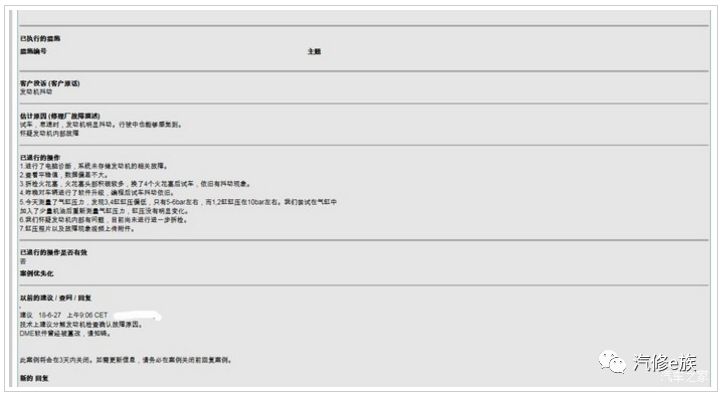
This is the rear of my car. The Land Rover next to it is the car of a friend who flashed the ECU on the same day as me. [What a blunder]
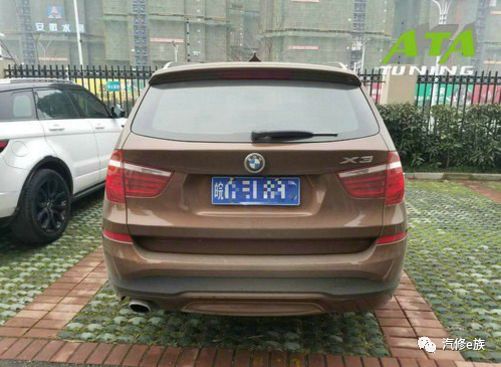
When I flashed the ECU, the engine compartment still looked brand new.
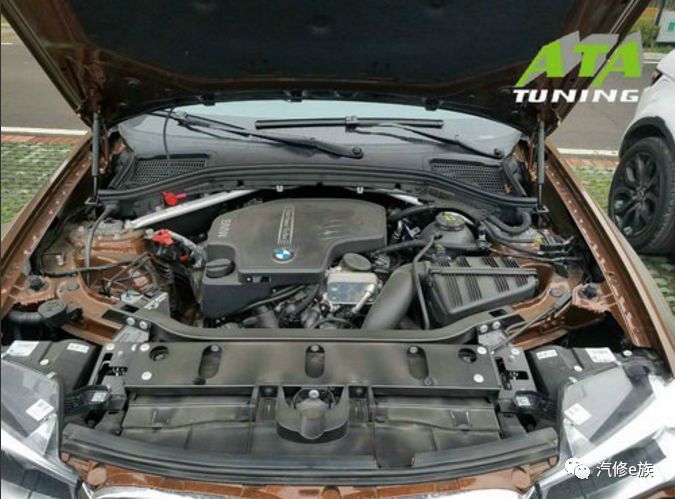
My car has 135KW, while the high-power version has 180KW. I directly flashed it to 180KW. As a result, the engine couldn’t handle the pressure and failed.
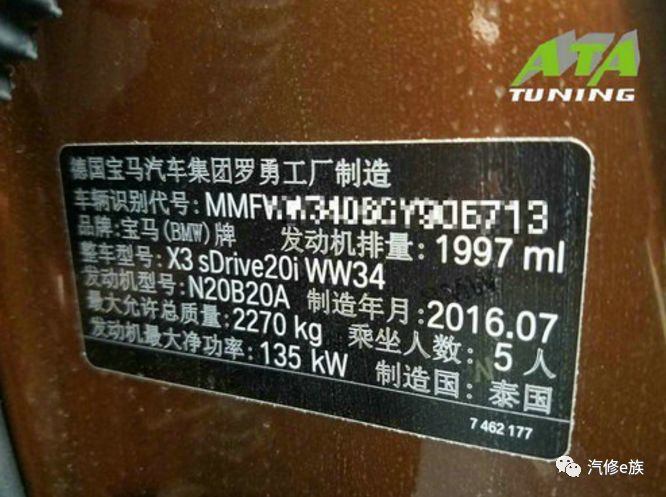
At the time of the ECU flash, I thought it was done via OBD, not realizing that the computer had to be violently disassembled, the casing opened, and the program written in after cracking it.
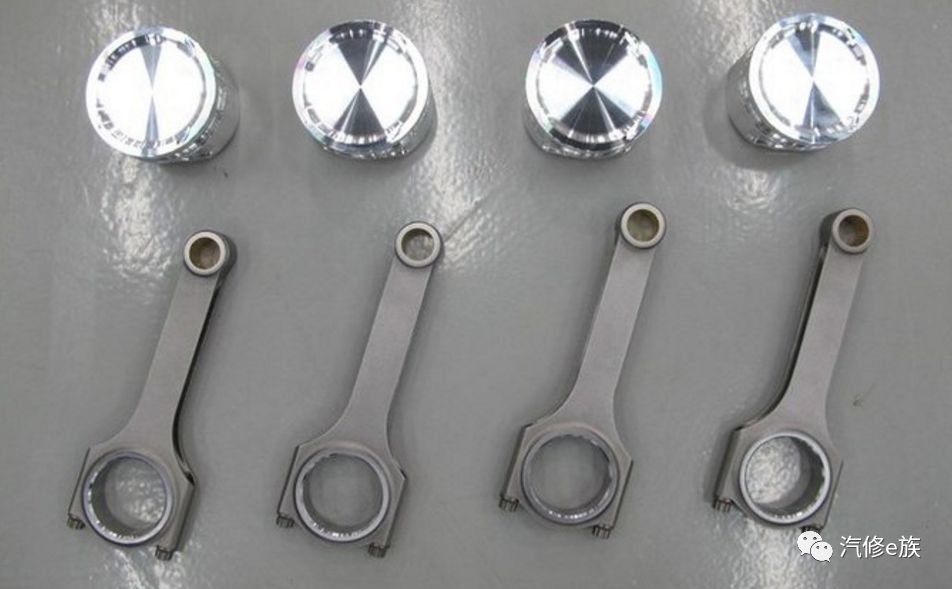
This is the interior of my car. The low-spec version is quite basic.
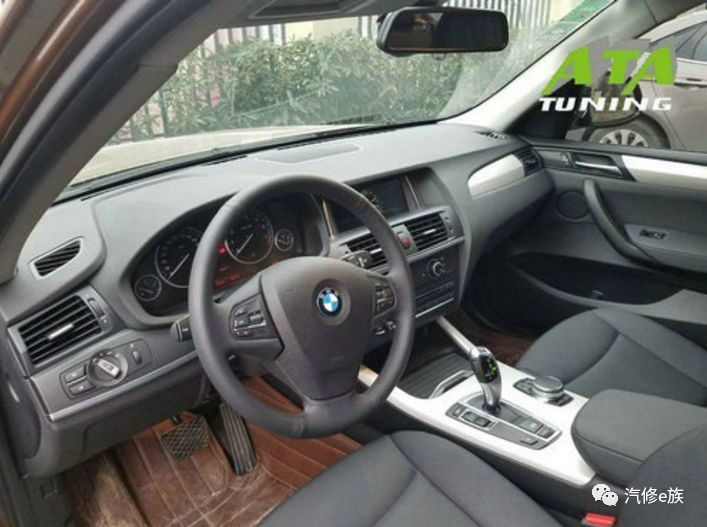
I flashed the ECU when the car had only 1,600 kilometers on it. What a reckless decision!
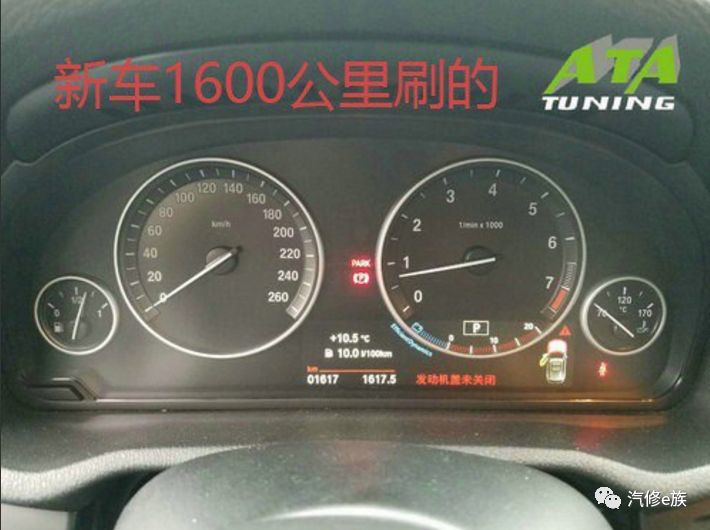
If you want to flash the ECU, I suggest upgrading the pistons and rods to forged ones. This way, they are more durable!

This is the position of the valves in the engine after the failure.
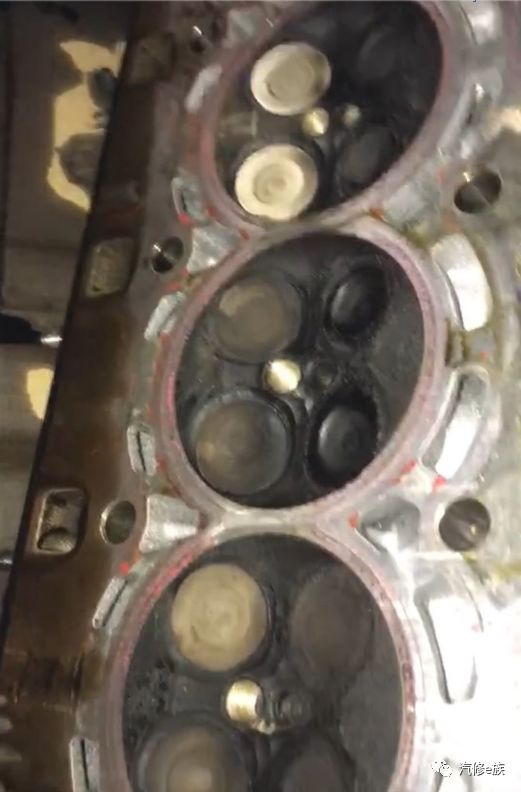
This is my car displayed as a case study on the vendor’s homepage. They have now removed my case. Luckily, I took screenshots at the time.
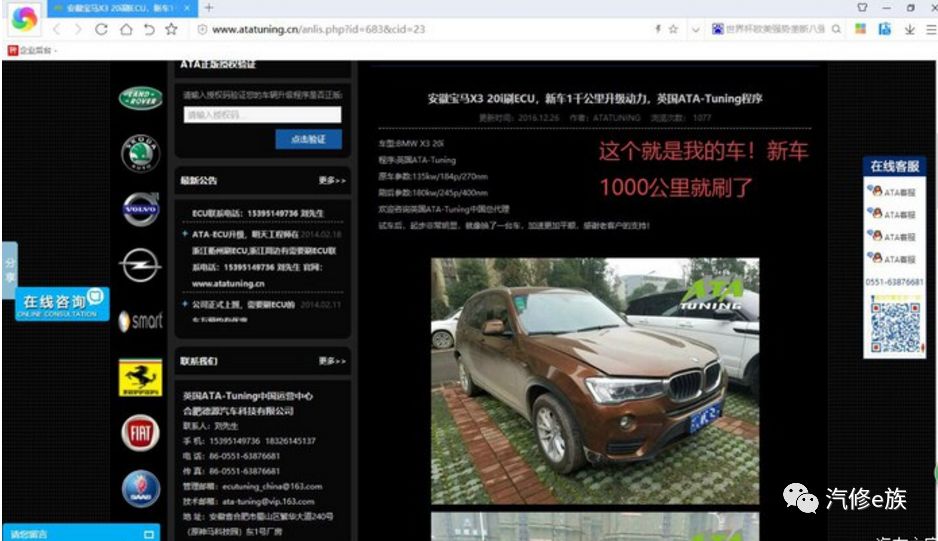
This is a conversation I had pretending to be a new customer consulting them about their services. However, when real issues arose, the attitude of the company owner towards after-sales service was quite different. Haha!
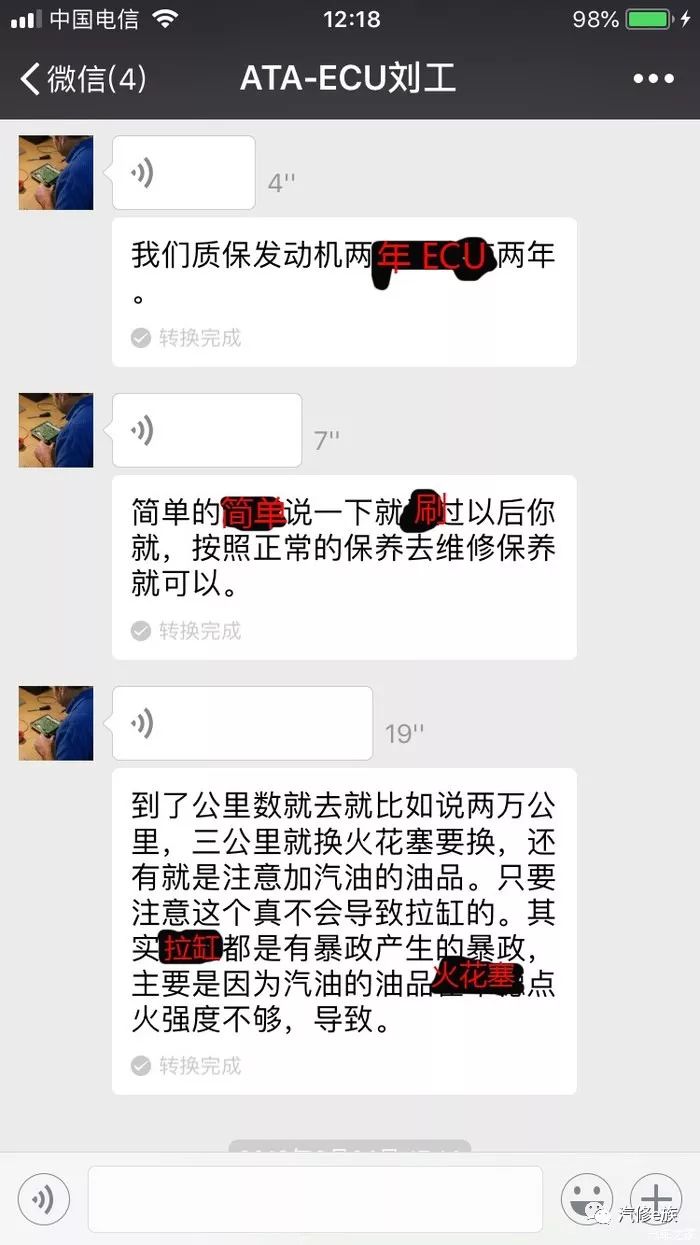
They accused me of not changing the spark plugs for 50,000 to 60,000 kilometers. Haha! What a lack of intelligence!
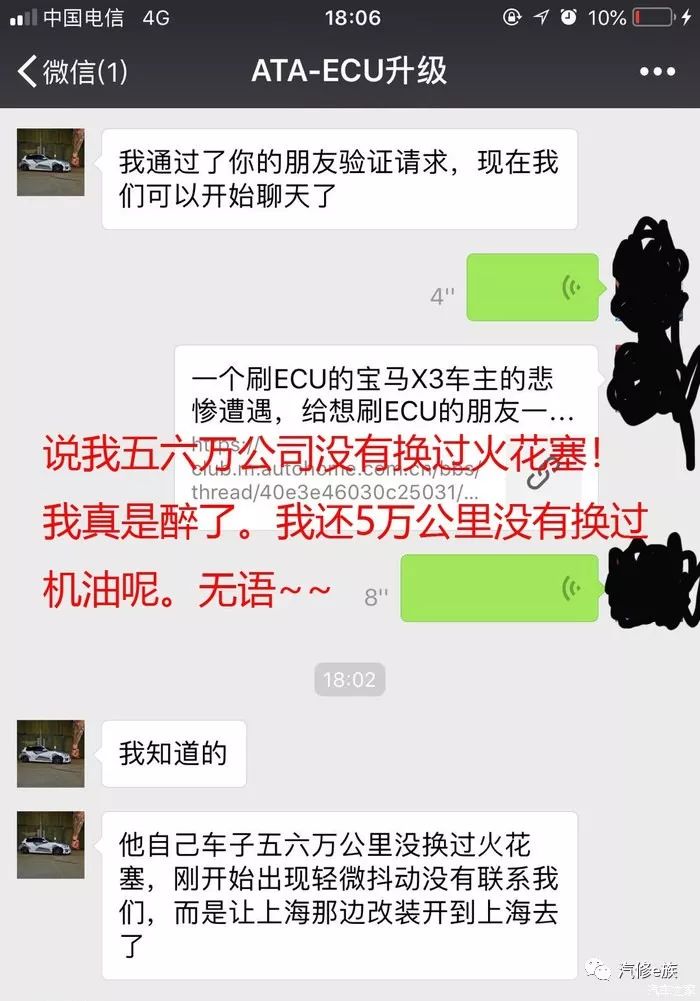
Click the titles below to read more valuable content
Free Resources | Engine Timing | Remote Matching | Tire Pressure Reset | Flashing Hidden Features | Volkswagen Repair Cases | Audi Computer Installation Locations | Audi Gear Emergency Techniques | Transmission Oil Change Guide | Common Automotive Faults and Issues
